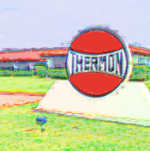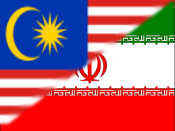 Two weeks ago, we reported on a $14,613.24 fine imposed by the Bureau of Industry and Security (“BIS”) on Thermon Manufacturing after Thermon voluntarily disclosed to the agency that it had shipped heat-tracing equipment to Sudan in violation of the U.S. embargo on that country. That was not the end of the story, however, but rather merely the foreword to a more disturbing story.
Two weeks ago, we reported on a $14,613.24 fine imposed by the Bureau of Industry and Security (“BIS”) on Thermon Manufacturing after Thermon voluntarily disclosed to the agency that it had shipped heat-tracing equipment to Sudan in violation of the U.S. embargo on that country. That was not the end of the story, however, but rather merely the foreword to a more disturbing story.
Yesterday, BIS posted a press release on its website describing the rest of the tale. According to that press release, BIS fined five foreign subsidiaries of Thermon $176,000 because those subsidiaries had also exported heat-tracing equipment to “Iran, Syria, Libya and listed entities in India.” This violations had also been voluntarily disclosed by the parent company in Texas.
What makes this fine problematic is the following statement in the press release:
The Thermon subsidiaries did not inform Thermon Manufacturing of the ultimate destinations for the items and had been informed by Thermon Manufacturing in February 2005 that “products manufactured by Thermon US may not be sold to countries on the US trade sanctions list,” including specifically Iran, Syria and Libya. BIS alleged that the affiliates acted with knowledge of those violations involving shipments to sanctioned countries that occurred after this warning.
First, one has to wonder what else Thermon was supposed to do. Thermon had instructed its subsidiaries not to violate U.S. export laws, and specifically that they could not sell equipment to countries subject to U.S. economic sanctions. It also appears from the press release that the subsidiaries pulled the wool over the parent company’s eyes and placed orders for the equipment at issue without telling the U.S. parent that the equipment was destined for sanctioned countries. And although the fines were imposed on the subsidiaries rather than the parent, this is just an accounting nicety. Thermon ultimately pays this fine.
In essence, this fine is nothing more than a penalty imposed on U.S. companies for having foreign subsidiaries unless and until BIS provides industry some guidance as to how to avoid such fines other than simply shutting down foreign subsidiaries. Was the problem here that the instructions by the parent to the subsidiaries about exports to sanctioned countries weren’t frequent enough? Or was it that the parent didn’t threaten to guillotine any employees of the foreign subsidiaries who violated these rules? Perhaps BIS thought that these instructions should have been bilingual. Your guess is as good as mine at this point.
Second, and this is an even bigger irony of the case, the parent’s instructions to the subsidiaries appear to have made things worse for the parent. It was because of those instruction that BIS elevated the penalty through charging that these were “acting with knowledge” violations under section 764.2(e) of the Export Administration Regulations. Damned if you do, damned if you don’t, as they say.
The charging documents haven’t been released by BIS yet. Perhaps they will shed more light on this sorry situation.

 Posted by
Posted by  Category:
Category: 

 An excellent
An excellent  In an ambitious display of extraterritorial overreach, the Bureau of Industry and Security (“BIS”) last week
In an ambitious display of extraterritorial overreach, the Bureau of Industry and Security (“BIS”) last week  In my
In my  An
An 

